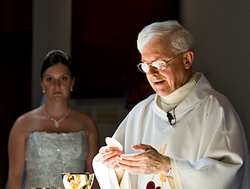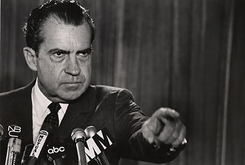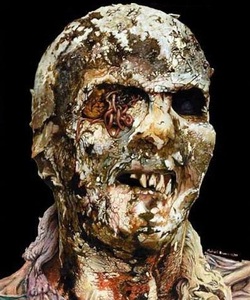
One of the greatest gifts we have in life is the sacred. Most of the human experience is mundane or tarnished by mundanity; the body rots, eye sight fails, friends let you down, temptation wins, the will saps and the mind slips. But then there are rules and rituals that help us transcend all of this and experience a moment of Heaven on Earth. Marriage is a good example.
Much of what I’ve seen of marriage has not been great. A good proportion of my family are divorced or raised by single parents, and everywhere else there is routine and bitterness. The closest relationship I’ve known is between my aunt and uncle. My uncle is one of those perennially, terminal ill men who has relied on my aunt for everything. And yet my aunt has never shirked her duty and never would. They are not in love, but they love each other. My aunt says, “He was a very good father and he always looks after us. So now we look after him.” It might not be romantic, but their partnership is rooted in a an old fashioned commitment to the marriage vows. And the vows are strict and unbending. The “in sickness and in health” bit terrifies me the most; I’m far too selfish to waste my time making chicken soup for the ill.
Looking over all the photos on my aunt's mantelpiece, the ones that are still polished and sparkling are the wedding ones. A woman clothed in white, like a princess; a man in top hat and tails like a Victorian gentleman. It says something about the meaning of marriage that no one ever dresses down for it. And why is everyone in tears? Remembering that some folks insist that marriage is purely a social contract designed to perpetuate the Capitalist patriarchy, why does it make people weep for joy? Is this a purely Pavlovian response bred by Hollywood and the Church?
No, the emotion is real and justified. The marriage ceremony takes the banal reality of a very basic human function – the desire to be with someone as much as possible – and elevates it to the divine. It’s a union blessed by God and what we’re witnessing is nothing less than a miracle: two individuals who are broken without each other becoming healed by each other's love. Life is best appreciated this way - as a series of miracles, of which these natural imperatives are among the most wonderful. Next will come conception, then birth, then baptism, and finally death. It isn’t just a biological cycle. It’s a journey every bit as challenging and rewarding as swimming the Sea of Tranquility.
But we have to be in the right frame of mind to appreciate the splendor, which is probably what accounts for the white dress and tails. I suspect that few people who get married nowadays are as virginal as the bride gown suggests. But romance is all about creating new states of being that take us closer to perfection. Much as the Tristan chord transports us to Valhalla, or the smell of strawberries evokes a perpetual summer, so the ritual of marriage makes us better prepared to receive and love one another. Again, that’s what the sanctification is all about: the transformation of something ordinary into something extraordinary. That experience prepares us well for a lifetime of dull holidays, long silences, arguments over the in-laws, and chicken soup.
How wonderful it is that we have the tools to make this happen, to experience the divine in this life. It's one of the great legacies of a Judeo-Christian culture, which preached that we could know God personally if we wanted. Plato would be jealous. For while he dreamed of imitating the “music of the spheres,” he could never hope to hear it for himself because it was only a metaphysical speculation. We, by contrast, live in an age of miracles. I only wish that we better equipped our people to seek and see them. Materialism and secularism blind us to how incredible ordinary life really is.



 RSS Feed
RSS Feed